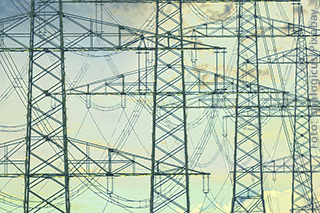The coal phase-out has many effects - including on electricity prices, CO2 emissions and the electricity mix in Germany. And there are other consequences that only become apparent at second glance: The coal phase-out also affects the stability of the electricity grids. This is because the inertia of conventional power plant generators helps to maintain the electrical frequency of 50 hertz: When a power plant fails, the instantaneous reserve resulting from inertia dampens the frequency deviation that occurs when the failure causes a power imbalance between generation and load. In this way, the reserve gives the primary control power the time to activate the compensation of the power imbalance. This avoids critical grid conditions that could lead in the worst case to power failures. This avoids critical grid conditions that could lead to power failures in the worst case.
A team from the Institute of Energy Economics at the University of Cologne (EWI) has now joined forces with the consulting firm ef.Ruhr GmbH to investigate how the coal phase-out in Germany affects the current reserve in the energy supply system. The study, which was commissioned by Siemens AG, shows that in order to ensure the frequency stability of the power supply system also in 2040, the conventional power plants still active at that time will not be sufficient, and measures must be actively taken to increase the momentary reserve or to stabilize the frequency.
Using EWI's own model DIMENSION for the European electricity market, the authors Dr. Eglantine Künle, Philipp Theile and Dr. Christian Wagner have optimised the power plant parks for the year 2040 in two scenarios. Both scenarios reflect the German coal phase-out resolved upon by the Commission on Growth, Structural Change and Employment (“Coal Commission”). In the second scenario, the European countries will make increased use of renewable energies with a currently high share of conventional power generation.
The authors considered two cases: a normative failure – a failure of 3 GW of power plant capacity – and a system-split case – a disintegration of the European interconnected system into several grid islands. Such a system-split case had already occurred in 2006.
The result of the analysis: More electricity from renewable energies and less electricity from conventional (coal-fired) power plants reduces the current reserve. In the scenario year 2040 the permissible frequency minimum in European interconnected operation would be undercut in the event of a normative failure, according to calculations by EWI and ef.Ruhr. In the system split case, the frequency gradient would rise critically. Both causes critical system states, which must be avoided at all costs for a safe and uninterruptible power supply.
To solve this problem, the authors propose to ensure frequency stability by taking concrete measures: For example by increasing the momentary reserve by means of appropriate converters of renewable energy systems. A faster frequency control is another option. The primary control power could be accelerated for this purpose, or an additional faster form of primary control, the “Fast Frequency Response”, could be established. This could be provided not only by conventional power plants, but also, for example, by wind turbines, battery storage systems, flywheels or even power electronic components such as HGÜ transmission.
